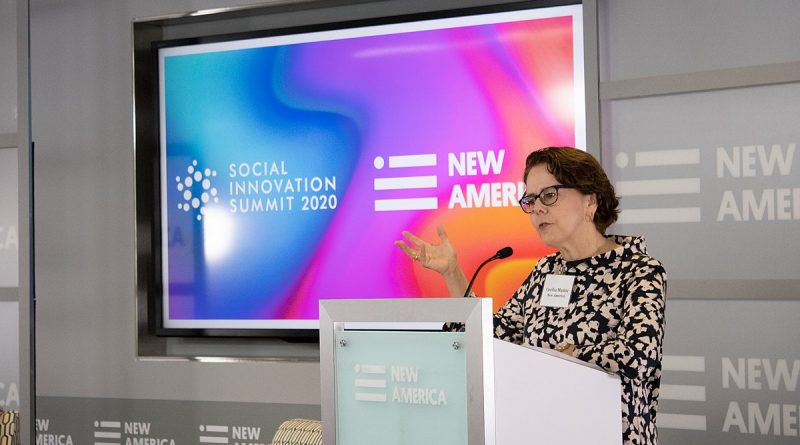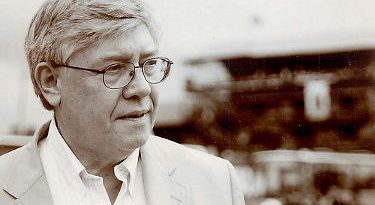A Discussion of Servant Leadership In Public Policy with Cecilia Muñoz
Andrea Hebel
International News Editor
On October 12, the Robert K. Greenleaf Center for Servant Leadership held its first annual Greenleaf Public Policy Lecture. The lecture featured keynote speaker Cecilia Muñoz, the current Senior Advisor at New America, and the former Director of the Domestic Policy Council under former President Obama. With over 30 years of experience in public policy in areas such as immigration, civil rights, and public interest technology, Muñoz’s lecture gave significant insight into how leaders can aim to serve others through their direction and embody the spirit of servant leadership.
Throughout her experiences as a leader in public policy, Muñoz shared that she has often found herself to be a first or an “only” in her position – the first woman to hold her job, or the only person of color in her position. Because of this, she often felt a tremendous amount of pressure to perform, leading to significant self-doubt in her abilities. She acknowledged that this feeling of immense doubt is shared by most women and people of color in leadership positions. In her situation, she felt this was often similarly compounded by doubts expressed by superiors and peers. After receiving a promotion to her position as Director of the Domestic Policy Council three years into her tenure at the White House, she added that this fear of failure only grew.
To combat these feelings of doubt, Muñoz explained that she developed coping strategies, as many leaders in her situation ultimately do. She found herself overpreparing for every meeting so that no question would catch her off guard. Much of this fear of being incorrect stemmed from the pressures that came from her situation of being the first woman of color in her position. She explained that for people with similar experiences, “We think our mistakes will reflect everyone like us, so we overprepare.” She also found herself relentlessly asking for feedback from peers, mentors, bosses, and subordinates – anyone who would understand that she wanted to do well in her position. By acknowledging, understanding, and actively working to improve her leadership flaws, she found herself quelling her doubts and actively improving as a leader.
When acknowledging these flaws, however, Muñoz addressed that if a leader wants to stay focused on their policy goals, they must “dare to be disliked.” If a policymaker aims to please every person they encounter, they will start to prioritize decisions that will lead to them being liked over those that will benefit their primary goals. By instead developing a “north star,” or a definitive goal that a leader can prioritize, they will stay directed towards accomplishing that goal. This does not mean that they should be unlikeable; by detaching personal acceptance and love from leadership goals, criticism affects them less and difficult decisions become easier.
For a policymaker, Muñoz explains, it is important that this “north star” is as clear and substantive as possible. She emphasized that policymakers too often have unclear or nonexistent goals and lack a clear understanding of what is best for the American people. By basing decisions on evidence and data, policymakers can develop informed, effective policies that will have the most positive impact on their constituents as possible. By also considering that those constituents are real people, with extremely real and palpable concerns, a policymaker can develop a data-backed north star that directly aims to create positive change in the lives of those they are working for. This is the epitome of servant leadership through policymaking.
Muñoz concluded that above all, it is important for leaders to show kindness through their actions. She reiterated that kindness is an extremely underrated leadership quality; too often it is mistaken as weakness, when in fact it can be a key factor in mitigating conflict and relating to those someone is trying to serve. By treating others with kindness and empathy when leading, a leader can acknowledge differences and use them as assets rather than sources of conflict., All types of problems can be solved when a leader remembers that every person’s perspective is valuable. Muñoz’s unique experiences and perspectives paint a realistic picture of servant leadership and policymaking that can be implemented by all.
The Greenleaf Center for Servant Leadership at Seton Hall University was founded in 1964 to advance the understanding and practice of servant leadership by both individuals and organizations. Their vision, through their new public policy lecture series, as well as their other initiatives on campus and beyond, is to create a more just and caring society by cultivating educated and informed people. Through speakers such as Muñoz sharing lessons on leadership, they hope to encourage individuals to become more civically minded and focused on the benefit that their actions have on their communities.
Image courtesy of New America (Wikimedia Commons)



